Rocking the Industry: How David Fishof Of Rock ’N’ Roll Fantasy Camp Blends Passion and Innovation in Entertainment
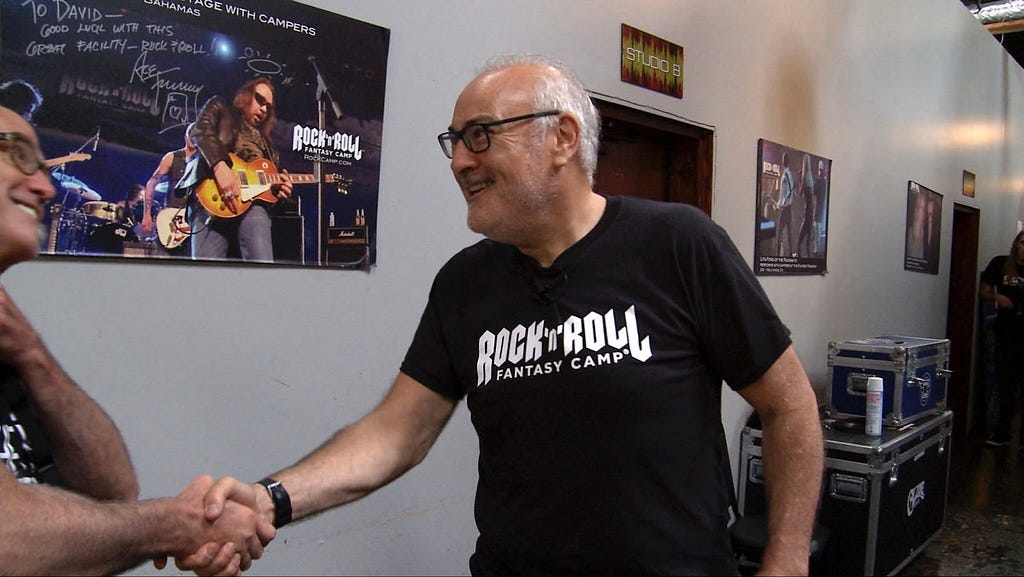
…You have more of an opportunity to be a musician and to be an artist full-time now versus the old days. In the old days, you had to rely on a record label to promote an artist and get a recording contract. Now, anybody can record, anyone can release music, and you can get your music heard by millions of people, whether it’s through TikTok or all the social media. This has enabled more people to become musicians, more artists to tour. … You can make a living. You can build a fan base, sell your CDs at gigs, and sell merchandise. Someone told me they saw a TikTok artist perform in a park with about 200 people showing up. This relatively unknown artist was able to gather an audience, sell his music, and everyone stayed for his concert. Now he’ll be able to perform at a club, sell tickets, and keep the revenue…
I had the pleasure to talk with David Fishof. David is a figure whose influence spans the vast landscapes of rock music, entertainment production, and beyond, embodying the spirit of innovation and the power of dreams. With a career stretching over four and a half decades, Fishof has become synonymous with creating unique experiences that bridge the gap between fans and their musical heroes.
Fishof’s journey into the world of entertainment began in the Catskills, where he grew up in a family deeply rooted in music and survival. The son of a cantor and a Holocaust survivor, Fishof’s early exposure to music and resilience shaped his path. Despite his initial desire to join his brother in a Jewish rock band, Fishof discovered his true calling: working behind the scenes. This realization propelled him from booking bands in his early days to becoming a sports agent representing notable figures such as Phil Simms and Lou Piniella.
However, it was in the realm of music and live entertainment that Fishof found his true calling. His innovative approach to concert tours and reunions, notably reuniting The Monkees for a blockbuster tour in 1986 and producing “Dirty Dancing: The Concert Tour,” showcased his knack for tapping into the cultural zeitgeist. His ability to leverage nostalgia, paired with strategic partnerships, such as the one with MTV for The Monkees’ tour, exemplified a forward-thinking approach to entertainment.
Perhaps Fishof’s most enduring legacy is the Rock ’N’ Roll Fantasy Camp, founded in 1997. This venture allowed over 7,000 participants to live out their rock star dreams, jamming with legends like Roger Daltrey and Joe Perry in iconic venues. The camp’s success led to a VH1 Classic reality series and a critically acclaimed documentary, “Rock Camp,” highlighting its impact on both participants and the rock legends involved.
Fishof’s adaptability was further demonstrated during the COVID-19 pandemic when he transitioned the camp experience to the digital realm with the Rock Camp Master Class program. This initiative allowed aspiring musicians to interact with their idols in a new format, ensuring the camp’s spirit lived on despite global challenges.
In addition to the Rock ’N’ Roll Fantasy Camp, Fishof’s entrepreneurial spirit has led him to expand into other areas, including a partnership with Adam Carolla to launch the first-ever “Comedy” Fantasy Camp. This new venture, featuring legends like Jay Leno, underscores Fishof’s commitment to providing transformative experiences across different facets of entertainment.
Beyond the glitz and glamor of entertainment, Fishof’s personal story is one of resilience and innovation. From his early days in the Catskills to becoming a key player in the entertainment industry, his journey reflects a deep-seated passion for music and an unwavering dedication to bringing dreams to life. Fishof’s work not only entertains but also connects and inspires, making him a true pioneer in the world of entertainment.
Yitzi: David, it’s such a delight and an honor to meet you. Before we dive into the interview, we’d love to learn about your personal origin story. Could you share a bit about your childhood and how you grew up?
David: I grew up as the son of a cantor and have watched the movie The Jazz Singer about 30 times. I remember flying to Florida on Eastern Airlines years ago, flying down in coach and coming back in first class just so I could keep watching the film. My journey began in the Catskills, and my dad is a survivor of Auschwitz and Buchenwald. My brother is a drummer in a Jewish rock band, but I couldn’t play an instrument. After a failed attempt to join the band, my dad suggested I work behind the scenes, so I started booking the band and eventually managed to book six bands a night. From there, I went on to write for the Jewish press, interview baseball players, and met Ron Bloomberg. I then began representing Lou Piniella and became a sports agent, representing Phil Simms and many of the New York Giants. Throughout all this, I’ve always kept a hand in show business, a passion that started from my Catskill days.
And then one day, I got a call asking if I wanted to represent The Association. I was confused at first, asking, “The association of what?” only to find out they were a band from the 60s. After going out to hear their music, which I loved and recognized every song from, like “Cherish” and “Windy,” I put them on tour. That summer was a success, and I managed to book them everywhere. Being this new young blood in the industry, I convinced everyone to invest in the band.
Following that, other bands like The Turtles, The Grassroots, and The Mamas and the Papas approached me, asking for representation. So, I took them all on and in 1984, I created a package called Happy Together. This was around the time when the movie The Big Chill was released, and everyone was into nostalgia music. Suddenly, I had sold the show and played in various venues, including a pier in Baltimore. I continued this success into 1985.
In 1986, while staying in a hotel in Kansas City, I stumbled upon a Monkees TV show. It was a nostalgic moment for me because The Monkees was the only TV show my parents allowed me to watch as a child. This sparked an idea, so I did some research and discovered that the band didn’t own their name — it was owned by Columbia Pictures. I acquired the rights to the name and signed three of The Monkees: Davy, Mickey, and Peter. We planned a tour that would include them alongside The Grassroots, Herman’s Hermits, and Gary Puckett and The Union Gap.
Coincidentally, I worked in the same building as MTV, a budding network at the time, which was planning to air a 24-hour Monkees marathon because the band was considered the first video band. I met with Bob Pittman, who ran MTV, and proposed a mutual promotion deal. He agreed, and as a result, when tickets went on sale, they sold far beyond my expectations. In Chicago, we sold 30,000 tickets, and in Detroit, 40,000. It turned out that young fans were buying tickets en masse, and their mothers, reminiscing about their own Monkees fandom, joined them. The concerts were a huge hit, with a mix of kids in the front rows and their mothers right behind them, all screaming in excitement.
The tour’s success was so massive that it caused traffic jams for miles. The first show was so popular that state police asked us to delay it due to the overwhelming number of people trying to get in. It felt like The Monkees were as big as Taylor Swift but on a more intimate level. This experience led me to move the tour to larger venues, and a year later, we continued our success with The Monkees.
Then I went to see the movie Dirty Dancing one day, and as someone who started in the Catskills as a waiter at the Lake House Hotel, I had a particular connection to the setting. My parents chose the Lake House for me because it required attending minyan every day. I watched Dirty Dancing and thought, if I could create a live tour of Dirty Dancing, bringing the dancers and original singers to the stage, that would make a great show. I came up with the idea, licensed the name, and did five nights at Radio City with eight shows sold out. I toured the whole world with Dirty Dancing, and Germany was my biggest market, known there as Schmutzig Tanzen.
I have a great story about that, but let’s save it for later. My business model involved finding a corporate sponsor for my tours, hiring a big agency like William Morris or CAA to book the tours to promoters, and then selling merchandising rights to a company. I guaranteed the artists a fixed sum. This approach was something I learned from my time in the Catskills. The company I worked for would guarantee comedians like Henny Youngman and Jack Carter a certain amount of money to do 50 shows, which might include performances at a bungalow colony on Saturday night or at the Concord and Grossinger’s on Monday and Tuesday. I applied what I learned in the Catskills, guaranteed money to bands, and put them on tour. After the Monkees, Dirty Dancing was my live tour project.
Then I applied the same business model and approached the President of Pepsi Cola. He called me, expressing interest in producing another tour because of the success we had with Mountain Dew and the sponsorship opportunities it created for their sponsors at our shows. He asked if I had any other ideas. I suggested Ringo Starr with an All-Star band behind him. My brother Joey, a drummer, considered him his favorite artist.
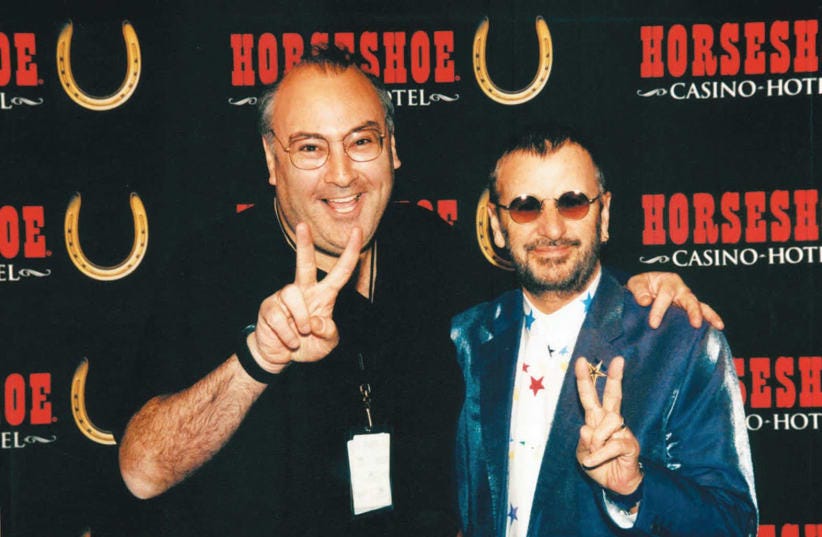
So, I reached out to Ringo. I wrote him a letter. Years later, it’s clear that to get through to anyone, you need to stand out amidst the noise. I made myself unique by FedExing a letter to his lawyer, offering the million dollars I had secured from Pepsi. I took that million dollars, offered it to Ringo, and got him to go on tour. Thirty-two years later, he’s still touring. I was involved for 15 years on the road.
I decided that my years as a sports agent were great, but I wanted to find something more meaningful in my life where I didn’t have to travel as much. That’s how I created Rock and Roll Fantasy Camp. It’s meaningful to me because it allows me to change people’s lives. The documentary shows how I’ve not only changed the lives of the participants but also the lives of the rock stars who join us. This idea then evolved into Comedy Fantasy Camp. After appearing on Adam Carolla’s show, he suggested we do a comedy version. I thought it was a fantastic idea. Adam pitched it to Jay Leno, who loved it, and we launched our first camp, which sold out. We’re now planning our second one with Jay and Caroline Rhea, who enjoyed it so much she wants to do it regularly. Jay, Adam Carolla, and John Lovitz, whom I approached because of his posts about Israel, are all coming back.
Comparing Comedy Camp to Rock Camp, the participants at Rock Camp often see themselves as musicians first, regardless of their day jobs. Joe Perry from Aerosmith once told a camper, a lawyer who plays guitar on weekends, that he’s actually a guitarist first, who just does legal work to afford his guitars. On the other hand, Comedy Camp attracts people who have never performed on stage, like a lawyer who represents controversial clients but dreams of being a comic. These are people encouraged by friends or family to pursue comedy, seeking to learn how to perform a three to five-minute set.
What makes Rock Camp appealing to artists like Nancy Wilson, who’s returned four times, or Joe Perry and others, is it reminds them of their beginnings. Gene Simmons highlighted this sentiment. The same goes for the comedians at Comedy Camp; it brings them back to their early days in comedy. Jay Leno, in particular, was brilliant at giving advice and enjoyed working with the comics so much that he’s participating again.
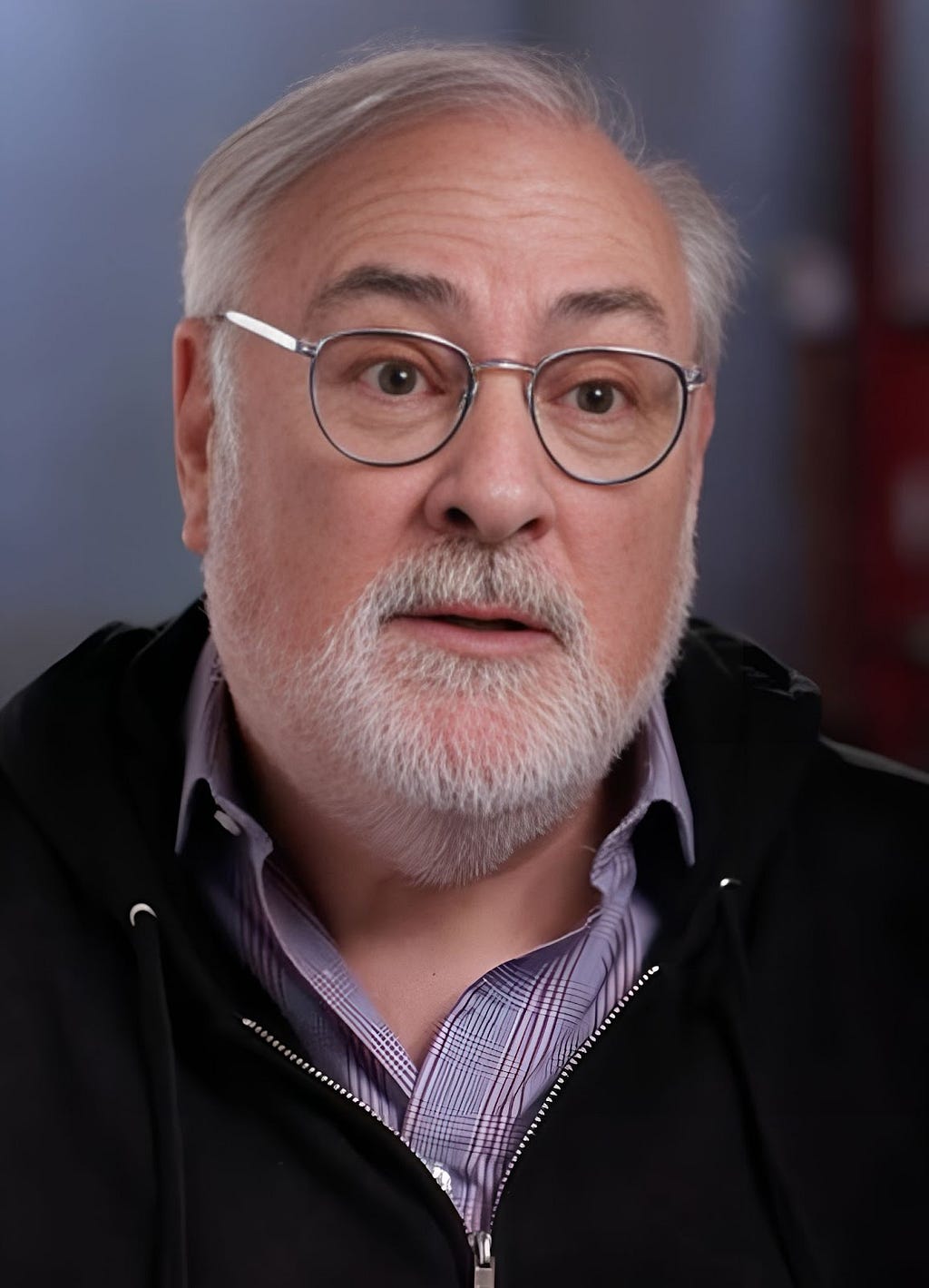
Yitzi: You’re such an amazing storyteller. Wow. So, I guess we’ll lean into that. You probably have a million good stories. Can you share with our readers one or two of the most interesting stories that have occurred over the course of your very fascinating career? Tell us one or two of the best stories, either funny stories or interesting stories.
David: Well, one of the funniest stories that led me to this new life of rock camp happened at the fourth show of Ringo and the All-Star Band. I had put this band together, and Ringo had suggested, “How about Radio City?” So, I invited the president of Radio City to come see the show. While I was having dinner with him backstage at the Warren State Art Center in New Jersey, Clarence Clemens comes over to my table and says, “Fishoff, I’m out of here. This idea of an all-star band is not going to work.” He explained that it’s one thing to get these rock stars to do a benefit for Live Aid, where they perform together once and then leave. But, he doubted how you could tour with an all-star band, with one guy from each band. He said there was too much fighting going on. Then, Nils Lofgren, also from Springsteen’s band, tells me he’s leaving too because no one can get along with the songs, and there’s fighting going on. He warned me it was going to be a bloodbath.
So, having mortgaged my house, besides having Pepsi as a sponsor, to do this tour, I went downstairs to the dressing room, worried. There, I found Joe Walsh with a knife and blood on his hands, and Levon Helm with a broken glass bottle, fighting. In a high-pitched voice, because I was scared of losing my house, I yelled, “Are you guys a bunch of babies?” They both turned and threw blood at me, then stuck their tongues out. This incident is on YouTube, just search “Ringo Starr, David Fishoff,” and it’s also in my film, “Rock Camp, The Movie.” That was probably one of the craziest stories that happened to me, and it inspired me to start Rock and Roll Fantasy Camp because I saw how much fun these people were having despite the chaos.
The other craziest story has to be about the Monkees. I was putting the Monkees together, and unbeknownst to me, that MTV story changed my entire life. I went from doing shows for 3,000 people on my Happy Together tours to performing for 30,000 people. That’s one of my two main show business stories.
Then, being around the sports world, like being around Phil Sims and seeing the Giants win in 1986, was incredible. I remember having dinner with the players before the game and telling them about how the Chicago Bears, who were very popular and had won the Super Bowl the year before, did the Bear Shuffle. They had Pete Rose and the quarterback, Jim McMahon, who wrote the commissioner’s name on his headband. They were special. I told the Giants they needed to create a point of identity to stand out because the team was considered boring. Phil McConkey, one of the Giants, decided to wave a flag, and that’s why today they wave flags and towels. That was his idea. Jim Burt, another client of mine, was the one who started the tradition of throwing Gatorade on Coach Parcells. That was his idea, and it was the first time it had been done. The third significant event at that Super Bowl was Phil Simms doing the first “I’m going to Disney World” commercial after winning the game. I’ve experienced many momentous events, but in the sports world, that was one of the biggest.
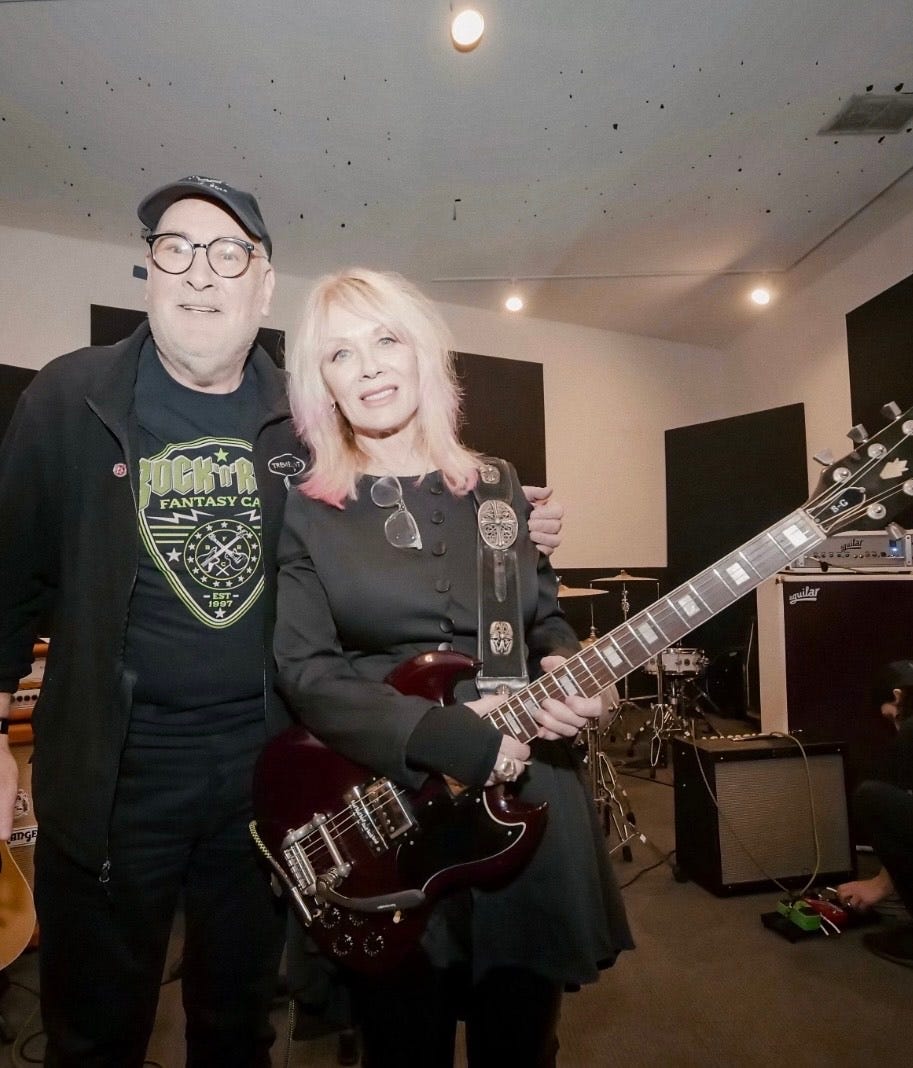
Yitzi: That’s funny you mentioned Joe Walsh. Just last week, I interviewed his daughter, Lucy.
David: Oh, that’s interesting. I have a story about Joe Walsh. When I was managing him, he asked if he could stay at my house. I had a big townhouse in Manhattan, and he ended up living downstairs. He was such a Michigander. One Sabbath, I decided to check if Joe was around to invite him for the meal. When I went downstairs, he wasn’t there. On Monday morning, he returned and explained he wasn’t sure if it was appropriate to join a non-Jew’s house for the Sabbath. But here’s an interesting twist: he introduced me to his friend, Gary Bellz. Gary’s father funded the cantorial school at WIU, the Bell School of Music. It’s fascinating because my father was a cousin. The people I’ve met over the years, thanks to my background and the variety of connections, have truly been amazing.
Yitzi: It’s been said that sometimes our mistakes can be our greatest teachers. Do you have a story about a humorous mistake that you made when you were first starting and the lesson you learned from it?
David: One thing that’s really important, which I realized early on, is the need to create a budget before diving into any ideas. Without a budget, my projects never worked out. Specifically, I had issues with my camp. I love the camp and kept adding more stars because I wanted to give people their dreams. This approach led to a significant moment when I received an email from a vice president at McKinsey & Company thanking me for the great experience. Seeing the opportunity, I asked for some advice. I shared how challenging running this business was, especially transitioning from success in music and being a sports agent to organizing camps. The advice I got was transformative. Six of the smartest people from McKinsey took me to dinner, where they allowed me to ask questions, and then they offered their insights. They advised me to make sure that if I earn $10, I should spend less, specifically $8, and save the rest. This lesson in budgeting was a turning point for my business. Scott Keller, who’s featured in my movie, played a crucial role in this transformation. The early mistake of not budgeting taught me the importance of financial planning and has been instrumental in changing my life around.
Yitzi: Okay, good. Let’s say you were the king of the music industry, the biggest studio, the king of Nashville. What changes are you happy about seeing in the industry over the past few years? And what would you like to change moving forward?
David: Well, the things that I like about what’s changed in the industry, which people probably don’t want to hear, is that music for artists is so available now that they don’t make the money like they used to. But you have more of an opportunity to be a musician and to be an artist full-time now versus the old days. In the old days, you had to rely on a record label to promote an artist and get a recording contract. Now, anybody can record, anyone can release music, and you can get your music heard by millions of people, whether it’s through TikTok or all the social media. This has enabled more people to become musicians, more artists to tour. Our parents used to say you can’t be a musician. My parents told my brother he had to be a rabbi, not a musician. But today, parents are more supportive of their kids’ passions. If it’s to be a musician, you can make a living. You can build a fan base, sell your CDs at gigs, and sell merchandise. Someone told me they saw a TikTok artist perform in a park with about 200 people showing up. This relatively unknown artist was able to gather an audience, sell his music, and everyone stayed for his concert. Now he’ll be able to perform at a club, sell tickets, and keep the revenue. What some people hate about Spotify, the old-time artists complain about not getting paid for their music, has actually opened up the world for so many artists to tour and for many comedians to become known. That’s what I love and think is the best thing that has happened to the business.
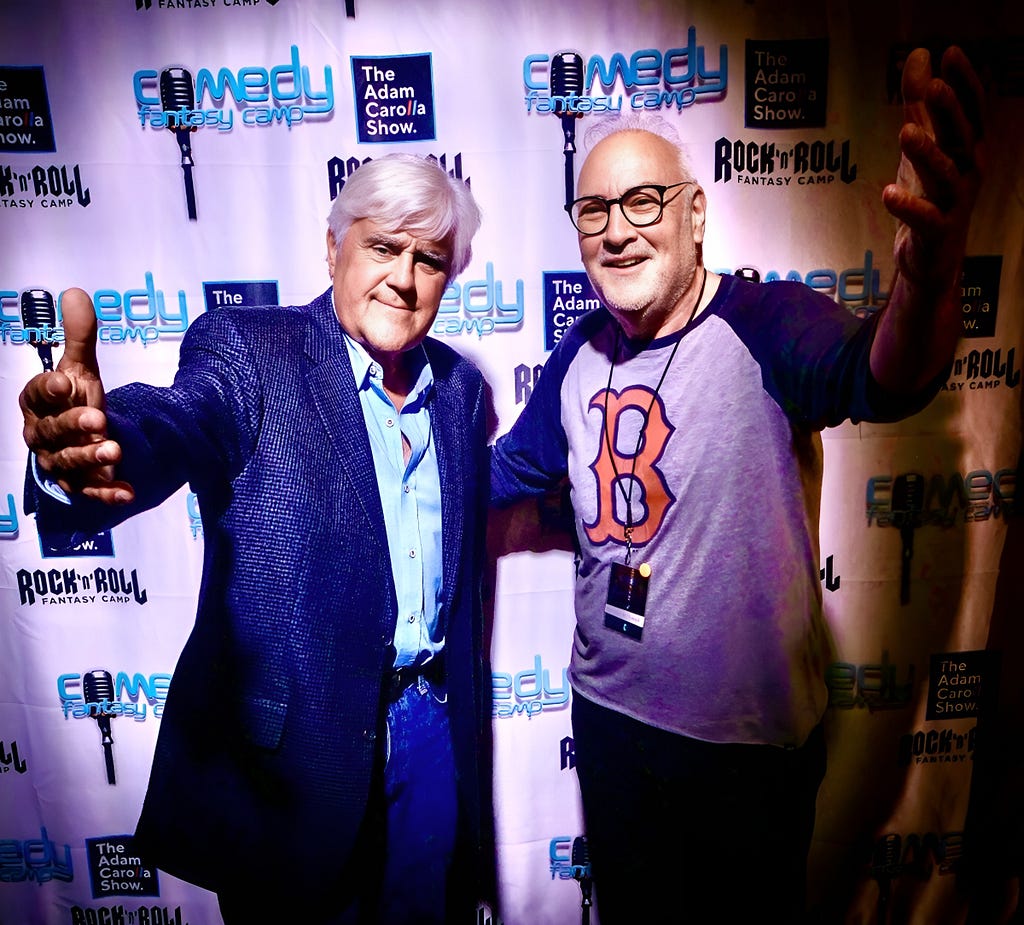
Yitzi: That’s great, it’s a really helpful perspective. I often hear that complaint.
So David, tell our readers a bit about the Rock and Roll Fantasy Camp and the Music Camp. Tell us what it does and how people can join.
David: Rock and Roll Fantasy Camp is incredible. I’ve been running it for 26 years. The first thing I recommend is watching the movie about it, which is available for free on Amazon Prime. It’s gained significant recognition; for example, the biggest episode of “The Simpsons” featured Nick and Keith at the camp. It was a top ten episode and has been featured on shows like “Bones” and “Jay Leno.” Jay Leno even made a joke about it when I first announced the camp, saying, “For $5,000, you can jam with a bunch of B-list rock stars. For $55,000, you can check yourself into the Betty Ford Clinic and jam with some B-list rock stars.” It’s also been mentioned on “Pawn Stars,” where you see someone’s fantasy of coming to Rock Camp realized in the film.
What’s truly great about it is the challenge and success of getting artists to participate. Historically, artists have been reluctant to meet fans in this context. For example, when I toured with Ringo Starr, we would leave immediately after the last song. You don’t typically meet rock stars. A personal story is when my daughter wanted to meet Oprah. We went to a show in Chicago, which featured country music artists, and Keith Urban shared how he would have loved to meet Steven Tyler and Joe Perry from Aerosmith, highlighting how inaccessible rock stars usually are.
Rock Camp has changed that. Unlike typical meet and greets, these rock stars stay for hours to help participants. Nick Mason from Pink Floyd intended to stay for two hours but ended up staying for four days. Slash was supposed to be there for a couple of hours but stayed for 10. Jerry Cantrell from Alice in Chains, and even Nancy Wilson, who has returned four times, show that these artists genuinely enjoy and get something out of the experience, making it unique and rewarding for everyone involved.
Some people are scared, I understand. I was invited to Michael Jordan’s Fantasy Camp, and my immediate thought was, “I’m not going to Michael Jordan’s Fantasy Camp. I’m not playing one-on-one basketball with Michael Jordan.” The fear was about making a fool of myself, which is a common concern for many. However, for those who’ve attended Rock Camp, the results have been incredible. They’re writing songs, joining bands, and teaching music. I receive daily emails from them, like one who recently opened up for Dave Mason. It’s remarkable.
Similarly, at Comedy Camp, the impact has been profound. One of the attendees is now opening for Adam Carolla at the Improv, having taken the initiative to contact Adam himself. Another attendee has secured 25 new gigs at comedy clubs. What makes both the Comedy and Rock and Roll Fantasy Camps extraordinary, as Tony Robbins would say, is the transformation that occurs when you immerse yourself completely in something for four days. It’s this total immersion that can change your life, and that’s the real magic of these fantasy camps.
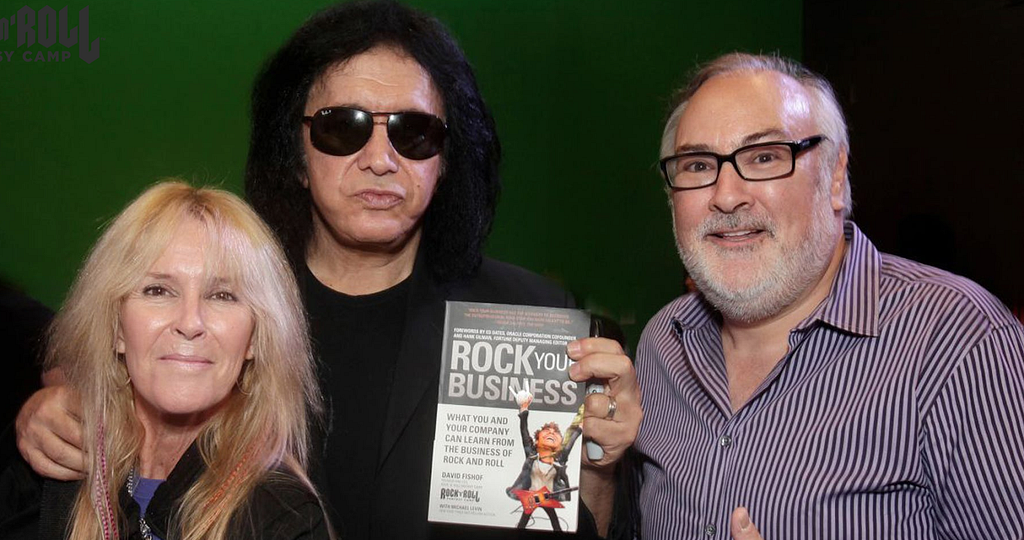
Yitzi: That’s brilliant, brilliant. So, are there certain qualifications you need to join?
David: No, not at all. We welcome beginners. At the Comedy Camp, about half of the participants have never done stand-up before. By the end, on the final day at the Improv, they’re performing five-minute sets. We spend time teaching them, mentoring them, and bringing out the comedy within. They’re usually funny people who just haven’t learned how to deliver their humor effectively. Coming from the Catskills, I have a soft spot for comedy even though I’m not a musician. Being a comic is hard, it’s challenging to make people laugh, but it’s also incredibly rewarding. I believe the participants have this ability within them, and it’s amazing to see them develop a routine and confidently take the stage.
I also run corporate team-building programs that start with a concert. Attendees are greeted with a backstage pass and introduced to renowned musicians like Lita Ford and Bruce Kulick from Kiss. I tell them, “Today, you’ll be rock stars.” They’re tasked with rewriting lyrics to a famous song to reflect what they’ve learned about their company. Then, they perform their version with the rock star backing them. Initially, many doubt their ability to do this. However, once in the conference room, with guidance from the musicians, they transform the lyrics, learning the importance of collaboration. This aspect of learning to work together and create something memorable is a crucial takeaway from both rock camp and our corporate programs.
I got the idea from Ed Oates, who was one of the original partners of Oracle. He visited my camp and approached one of the rock stars, saying he wanted to perform a song with his band. The rock star explained he had to teach five other people, from which Ed learned about team building. He realized that to be successful, one needs to listen and understand that music requires collaboration. The success of the Beatles, for instance, wasn’t diminished by Ringo’s drumming skills, which some criticized. Instead, Ringo was the perfect drummer for Lennon and McCartney, highlighting how crucial collaboration is.
The magic of the camp revolves around corporate collaboration. Taking the stage helps overcome fear and encourages creativity, which is essential for today’s AI-driven world. It teaches you to convey the message your company wants to express. For executives, learning to listen and leaving their ego at the door are key lessons, emphasizing that everyone is equal. Being in a band is, perhaps, the ultimate form of team building.
When we look at corporate America, it’s rare to see entities last as long as bands like the Rolling Stones, the Beatles, Aerosmith, Kiss, and U2 have. These bands have become brands that are now grossing more money than many companies, thanks to their ability to evolve with the times and maintain their brand relevance.
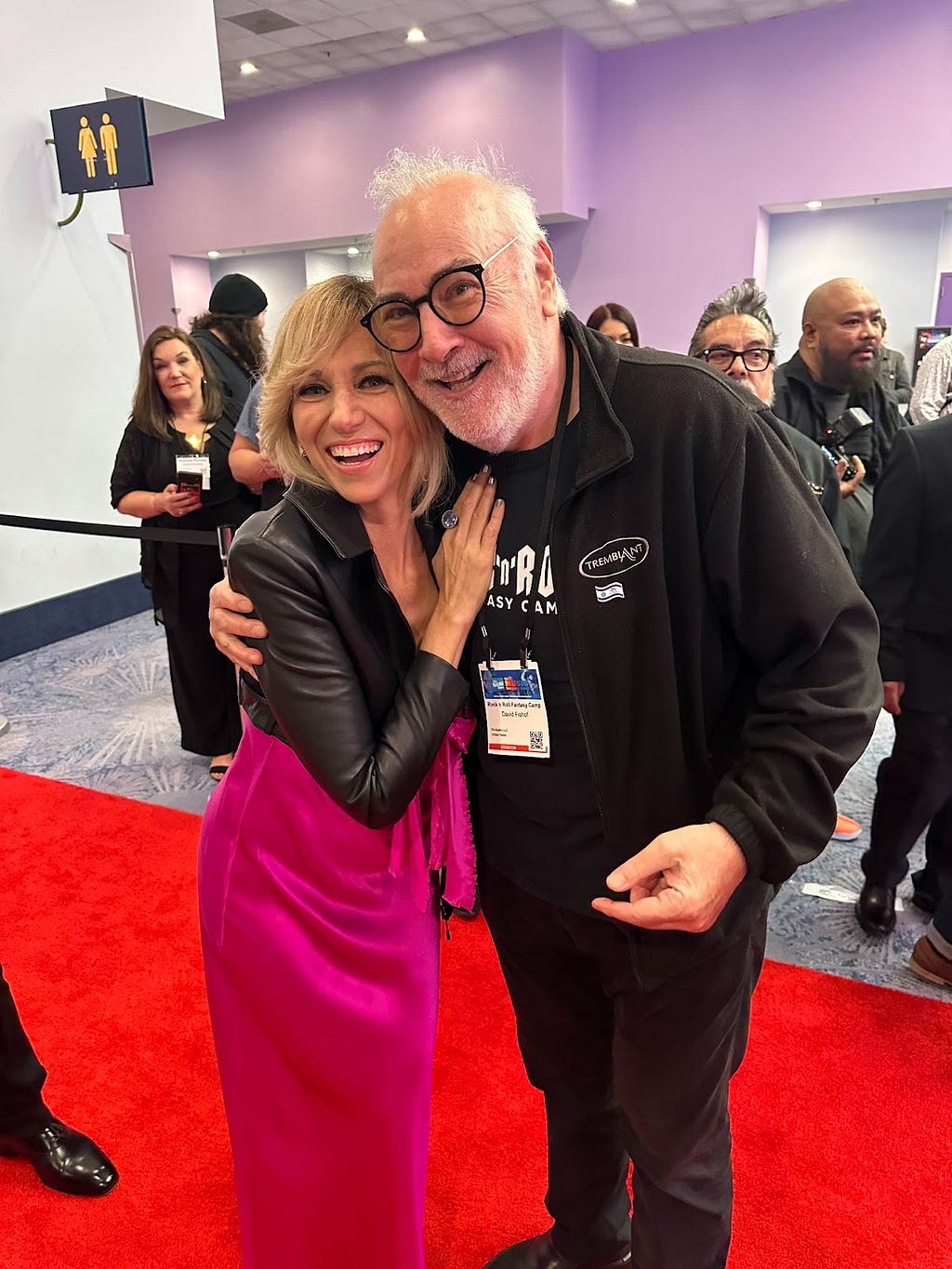
Yitzi: David, because of the platform that you’ve built, you’re a person of enormous influence. If you could spread an idea or inspire a movement that’ll bring the most amount of good to the most amount of people, what would that be?
David: The power of music brings healing. The power of music brings peace, love. Yeah, I would love to promote that. Also, the thing I really want to get out there is that being a musician, picking up a hobby. Hobby is so important for people, whether it’s music, number one.
Number two, I want to promote something else, passion. During COVID, when my business was down, my associate, Britt Lighting, and I came up with a concept to do 160 master classes on Zoom. And you could speak to Alice Cooper, Roger Daltrey, Stig, Scorpions, the biggest producers, the biggest managers. And we told them for an hour, come in, pay for a question, you get an hour. Well, I asked the rock stars. And from the 160 classes, there were two common denominators that all these stars had. Passion for their lives. That’s number one. Number two, it was about the song. Also, if you have passion, you should never quit your job. Why stop working? It’s healthy for you to work. I don’t care how old, you shouldn’t retire because then your brain stops.
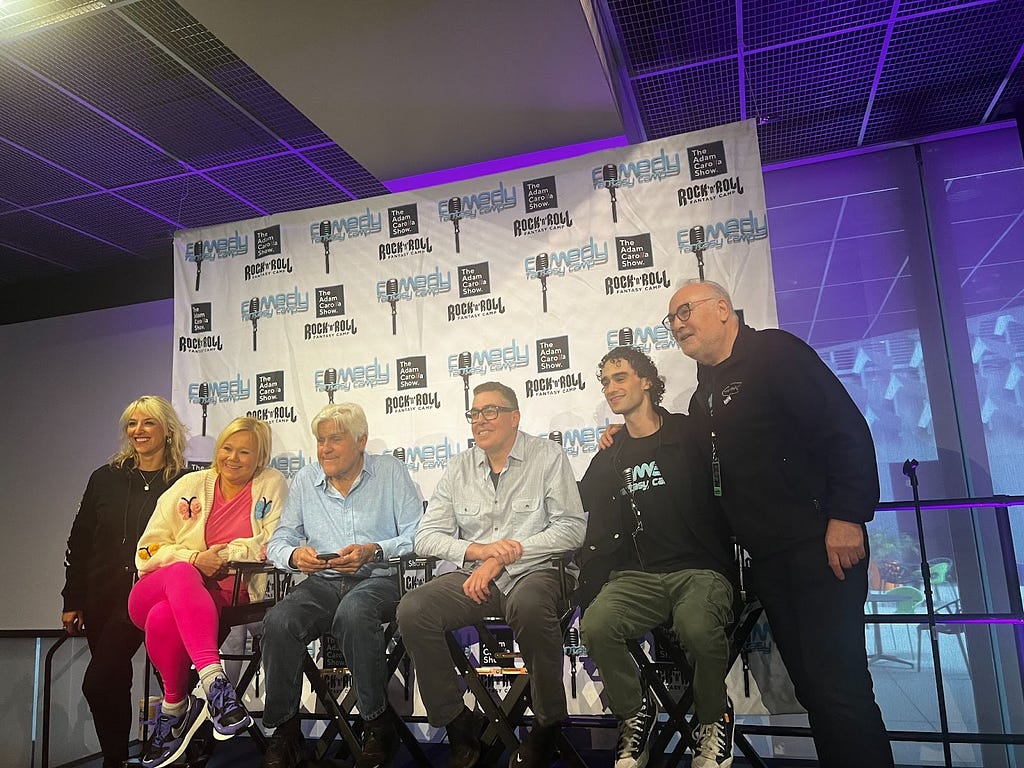
My father was a chazan, he was a cantor in Hackensack, New Jersey. And the president of the synagogue said to him, my next guy, he was making $10,000. The president of the synagogue said to him, you know, my next contract, you’re gonna have to negotiate with my son. He’s a big agent. And the president said, have David call me. I go to see him. He says to me, David, we can’t afford the cantor because we have the rabbi. And we can’t pay you, I said, stop. I’m gonna write you a check for $10,000. I don’t want him to lose his job. And it’s just so important to keep him alive. And I got back home and my father said, no, how did you do? I said, dad, I doubled your salary. And you can imagine what my father said in Yiddish. He said to my mother, you should have done my contract my entire career. I’m very passionate about not retiring and not retiring from work and to find something that it’s passionate that it’s not really work. It’s something that you love to do every day. So if it’s a guy who loves making sushi, like in my community, a guy who does, I saw he was doing sushi and he loves it. So he opened up a sushi restaurant. Find something in your life that’s passionate that you want to do and don’t quit and just turn it into a business if you can, or if you can afford it, do it for a charity.
Yitzi: David, thank you for those amazing stories and insights. I’m so excited to share this with our readers and I wish you continued success and good health.
David: Thank you, Yitzy. We’re gonna talk to each other later.
Rocking the Industry: How David Fishof Of Rock ’N’ Roll Fantasy Camp Blends Passion and Innovation… was originally published in Authority Magazine on Medium, where people are continuing the conversation by highlighting and responding to this story.